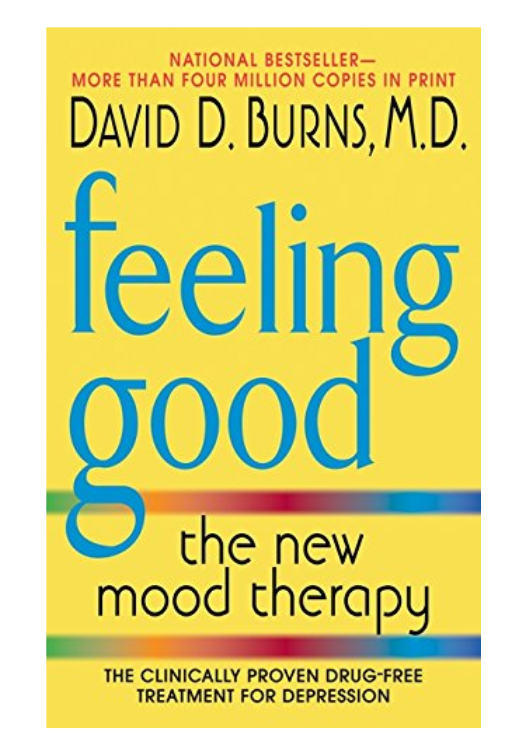In the words of Dr. Rick Hanson, “the brain is like Velcro for negative experiences, but Teflon for positive ones.” Our brains are wired for survival.
No one died because of sunshine and rainbows, therefore, our positive experiences don’t get in the way of our survival so they tend to quickly move in and out of our minds, not sticking around for too long.
We are wired with a negativity bias because, you guessed it, the negative experiences CAN impact our survival so we keep those closer in our awareness.
A friend recently asked for a book recommendation on how to deal with negative thoughts for better mental health. I have a lot, but a few years ago I stumbled across this gem and refer to it regularly (as you can see by how worn out it is lol).
I’ve re-read this book so many times and often wondered why its contents are not taught in schools.
🧠 It is a practical guide to ‘cognitive behaviourial therapy’ –a form of talk therapy based on emotional and mental responses to external events. I won’t get too detailed (the book does a wonderful job) but I have greatly benefitted from CBT and learned certain lessons…
🧠 The underlying strategy of cognitive therapy is that whenever you think that no one could ever love you or that life is meaningless, you just reposition your mind to think lovely, wonderful thoughts – a memory of a better time. Think what you don’t feel like thinking – a type of self-delusion, but it does work!
🧠 Force out of your mind the people or event associated with your sadness; the cruel lover, the disloyal friend, the racist, the rude colleague, the death of a loved one, the rapist –lock them out! It helps! Of course I am oversimplifying it but it is ‘learned optimism’.
🧠 CBT teaches the art of self-awareness, which is a lifelong process and one that requires a great deal of patience and forbearance. The therapy is only as good as the practitioner and I make daily prayers for the strength in keeping up with it. I found a great deal of peace by applying the principles, and I hope you do too!
Everytime someone dies by suicide, we are quick to say, “check up on your friends” and although we should do that, it is quite obvious that some folks who died by suicide, had more than enough social supports.
Your mind and body are the only places you live in, despite whatever changes around you, so friends, before you check in on your friends, check in with yourself. ❤🙏🏾
Published: April 1999
Pages: 736
